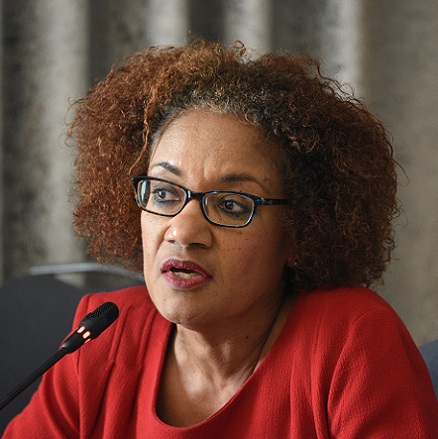Distinguished Representatives of Government, Agencies, Civil Society, and Development Partners,
Ladies and Gentlemen,
I am delighted to join you today at this important event where the World Bank team will present Breaking the Cycle of Roma Exclusion in the Western Balkans Report with key findings and recommendations of the Regional Roma Survey.
We have been closely cooperating on the Roma inclusion agenda in the Western Balkans with UNDP and the European Commission Directorate-General for Neighborhood and Enlargement Negotiations (DG NEAR). We appreciate the EC support for the Regional Roma Survey and the analytic and policy work on Roma returnees and the UNDP on the implementation of the Regional Roma Survey.
Why this report?
High-quality data and research on Roma inclusion to inform evidence-based policies is scarce and this regional report aims to fill this knowledge gap and inform policy making. The World Bank report that we are launching today in Tirana examines Roma inclusion in the Western Balkans in five priority areas: education, labor markets, health, housing, and documentation.
The report uses data from the 2011 and 2017 rounds of the Regional Roma Survey, the most comprehensive survey to date on living conditions and human development outcomes among marginalized Roma households and their non-Roma neighbors. We would expect both groups to have the same access to basic services such as education, health care, electricity, and water, as well as to the same labor markets. The survey finds that despite progress in a few areas there have not been significant improvements in any of the priority areas.
Some findings for Albania

Way forward
Closing the gaps across the priority areas calls for a broader inclusion agenda that includes Roma-specific policies throughout the life-cycle from early childhood education to improved access to adequate housing and health services and labor market participation.
Providing Roma with the same opportunities available to the general population is associated with potential fiscal gains, and Roma inclusion is smart economics. The Western Balkans region is grappling with demographic aging, and the benefits of Roma inclusion are not negligible and include the productivity gains associated with higher employment rates and labor earnings, including fiscal benefits like greater tax revenue and lower social assistance spending.
We in the World Bank are commitment to integrate findings from this work into our own programs and policy dialogue, and further deepen collaboration with the EC to strengthen policies and programs in the Western Balkans that will enhance Roma inclusion.
I would like to also thank the civil society organizations that represent the interest and voice of Roma for their contributions in our earlier meetings and consultations with them about preliminary findings and recommendations. This report benefitted from this fruitful cooperation.
The team will inform you more about the report, and I am sure you will have a fruitful discussion during the workshop.
Thank You!
